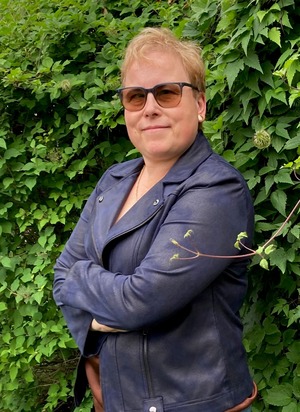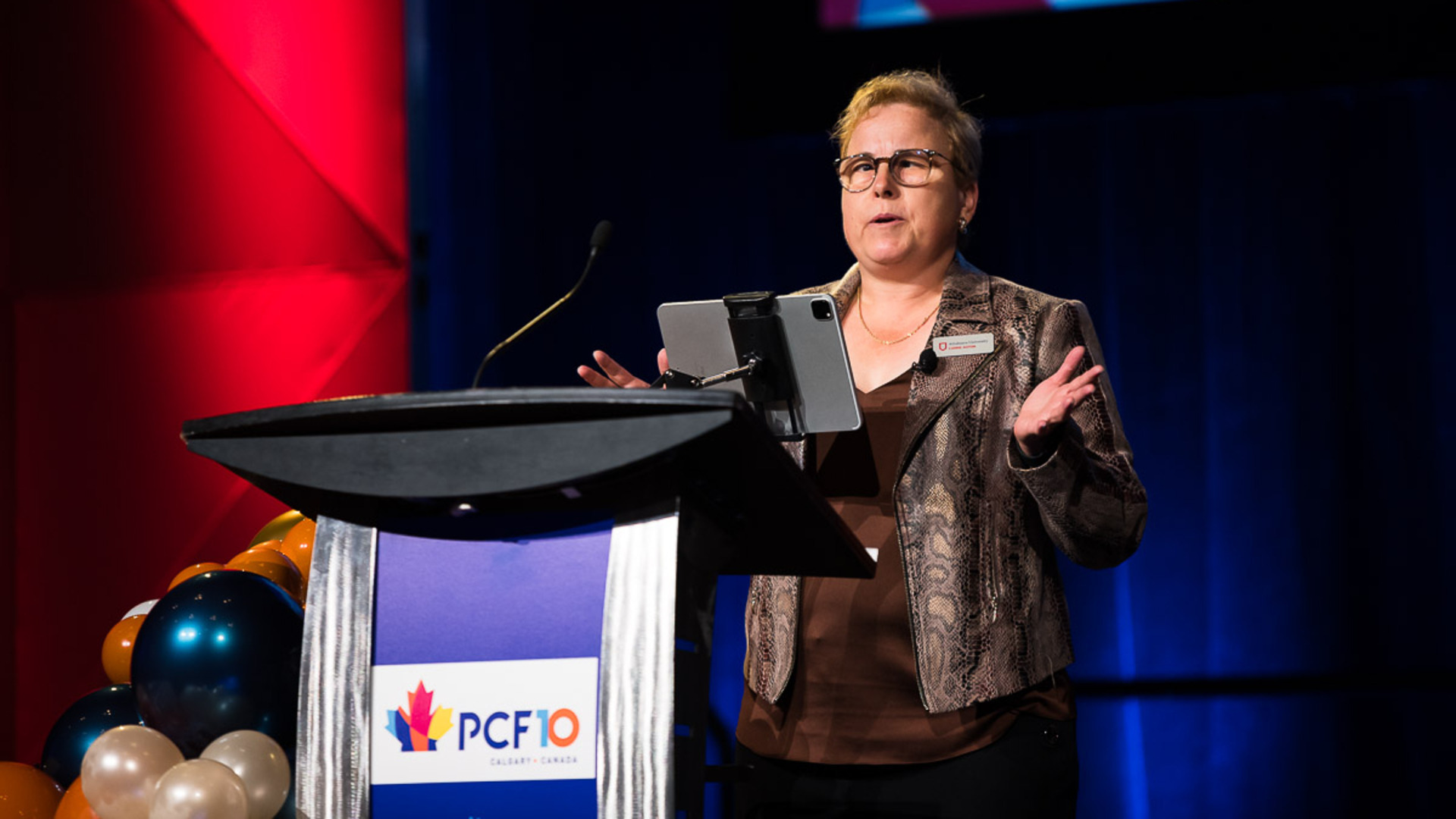Accessibility Services team led by Carrie Anton brings personal experience to bear in supporting Athabasca University students with disabilities
Of all Carrie Anton’s accomplishments—and there are many—she says she’s most proud of her team’s work to support students with disabilities through Accessibility Services at Athabasca University. And that’s saying a lot.
Aside from AU, she has had an impressive career spanning coast to coast to coast in Canada, has won a Paralympic gold medal in Goalball, has done national and international not-for-profit work, has visited 33 countries, and is a professional keynote speaker.
 But it’s leading the Accessibility Services team—applying her own life experience to her work supporting students with individualized learning supports and accommodations—that has been most meaningful for her.
But it’s leading the Accessibility Services team—applying her own life experience to her work supporting students with individualized learning supports and accommodations—that has been most meaningful for her.
“My biggest, proudest moment I think is the team we have right now,” Anton said. “They’re just so into it, so into helping each other and helping students. That’s really their focus.”
The structure and services provided by her team have evolved over the years, and she said she sees her team’s role having an impact across the university—including in AU’s new strategic plan, Like No Other, which emphasizes access, opportunity, and community for all learners.
“Access, and inclusion? We’ve been doing that for a decade,” she said. “It tells me the team is influencing culture. We are making change, and we’re helping students.”
But before Anton was helping break down barriers for others, she was more focused on navigating her own.
Related: AU accessibility advisor competes in goalball at Paris 2024 Paralympic Games
Access to education
Anton has been legally blind since birth. From an early age, and with the full encouragement and support of her parents, she focused on the things she could do rather than the things she couldn’t, especially when it came to education.
“I was lucky, because my parents said I could do anything I put my mind to,” she said. “And they still say that.”
But that doesn’t mean there weren’t challenges, especially during a time when neither the intentional focus on accessibility, nor the technological advances that help folks overcome limitations like blindness, were commonplace.
And so, Anton did her best and worked hard to overcome the barriers that were placed in front of her, and to get access to the tools, resources, and support she needed to learn despite her vision loss. Supports like cassette-tape recordings of textbooks created by volunteers at the Canadian National Institute for the Blind (CNIB) were invaluable.
“Those were challenges I had throughout my life,” she said. “Seeing the board, reading the textbook, getting material on time.”
Although she at one point had planned to work as a behaviouralist, a psychologist, or maybe even a police officer, she found she couldn’t do it. When others started to guide her towards assistive technology, she ultimately fell in love with the idea of helping others to use these resources to reach their own educational goals.
“Accommodations have to be individualized. We can’t just have a blanket accommodation for everybody, because that’s not going to meet their needs.”
Carrie Anton, Accessibility Services coordinator
A career breaking down barriers
While Anton has held a wide variety of jobs throughout her career, the focus on assistive technology began when she was hired for an eight-month cross-country project on the “Technibus,” created through a partnership with Industry Canada and CNIB.
The bus travelled to more than 200 communities across Canada, with the goal of demonstrating how technology could support people who are blind or partially sighted.
“I was the technician on board, but I didn’t really know the technology,” she said. “In a sense, I got the job that helped me understand how assistive technology and accessibility can help others, not just myself. It was really cool.”
After a decade working for a company that sold assistive technology, Anton found her way to AU in 2007, when she took a job with the Accessibility Services team.
The role gave her the opportunity to get involved in research related to assistive technology and the impact it can have on students, but more significantly gave her the opportunity to support students in reaching their own educational and career goals.
“Ever since I joined AU, it’s been very rewarding. It’s an environment where I can now use the technological skills I have and thrive.”

Creating opportunity and community through access
When Anton started with the department, there were four staff. That has since grown to a team of 11 “really passionate people who understand the needs of people with disabilities and want to share that knowledge.”
While part of the work relates to advocacy—making AU more accessible as a whole will ultimately reduce the need for student accommodations—most of it involves working directly with students to understand their needs and understand what accommodations may remove barriers to their success.
There are about 3,000 students registered with Accessibility Services, and the team can handle more than 100 new registrations each month, working with students individually to understand what barriers they’re facing and providing options for them.
“Every registration is at least a conversation,” Anton said. “It’s manually doing the paperwork to review the medical documentation, to see what fits, and to create an accommodation plan with the student.”
Formal diagnoses are not necessary, just an understanding from a medical perspective how academics would be functionally impacted by the person’s experience with their disability. With this understanding, staff work with students to identify an accommodation plan that will meet their individual needs.
“Accommodations have to be individualized,” she said. “We can’t just have a blanket accommodation for everybody, because that’s not going to meet their needs.”